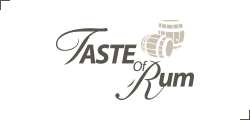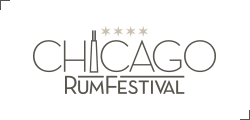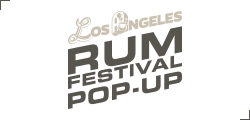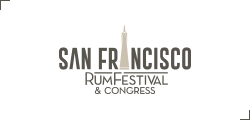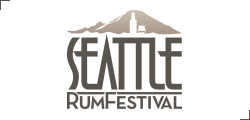Rum Connoisseur Interview Of The Week IAN JOHN Master Distiller and Quality Systems Manager of St. Lucia Distillers Ltd

Rum Connoisseur
Interview Of The Week

IAN JOHN
Master Distiller and Quality Systems Manager
of St. Lucia Distillers Ltd
1. Who is Ian John?
I am employed with St. Lucia Distillers Group of Companies for twenty years. I first joined the company in August 1999, as a Production Assistant in the Blending Department, where I understudied the art of blending rums from the Master Blender Evanus Harris. My time with Mr. Harris was short-lived when he left the company in mid-2001, and I suddenly started blending rums on my own, with the limited knowledge of rums I acquired. It was a baptism by fire, and I had to learn quickly.
In 2002, I went to further my studies in Brewing and Distilling at Heriot-Watt University in Edinburgh, Scotland, where I expanded my knowledge of fermentation and distillation, and learnt some of the blending techniques used in the Scotch Whisky industry.
In 2004, I obtained an MSc. in Brewing & Distilling and shortly after returned to St. Lucia. I resumed my rum career at St. Lucia Distillers, and I started working in the Distillery, managing the fermentation and distillation processes.
Over the years, I took on several roles within the company, including managing the food safety program (HACCP) and assisting in the development of many programs spearheaded by WIRSPA on SLD’s behalf.
In 2018, I became the Distillery Manager overseeing the plant’s operations.
2. What does the rum mean for you? What made you fall in love with rum, and when did it happen?
Rum is simply an expression of emotions, ideas and passion in a liquid form that is shared with others through complex aromas, tasting notes and textures.
I first fell in love with rum when I was 21 years old after I completed my first rum blend, and I brought it to a tasting panel for evaluation. After about 5 minutes of nail-biting silence, the late Laurie Barnard, the then Chairman of SLD, smiled at me and said, “Young man, this blend is better than the standard blend, I believe you have a gift, and you should explore it.” It was that moment I realized I love making rum; and love the feeling I get when someone enjoys the rum that I am involved in creating.
3. Three essential characteristics that define the rum according to your perspective.
1. I believe rum is characterized by its sugarcane flavours derived from the fermentation of sugar cane molasses, syrup or juices that are further concentrated in the distillation process.
2. It is aged in wooden oak barrels in tropical conditions. The array of oak flavours and aromas are naturally derived from the wood the spirit is aged in.
3. It is fermented, distilled and aged in the country of origin.
4. What is the most important contribution you have made in the rum industry?
In St. Lucia, its educating locals and visitors on rums history, processes and styles.
However, within the Caribbean region, I worked along the West Indies Rum and Spirit Producers Association (WIRSPA), to develop a program to benchmark the fermentation and distillation efficiencies at distilleries so members of the association can better improve their conversion of sugars within the molasses to alcohol produced.
However, within the Caribbean region, I assisted with the development
5. Benefits that the rum industry has given you.
I am able to make a career doing something I love, and I’m able to meet fellow rum enthusiast around the world who shares the same passion as I do. This allowed me to grow in knowledge and appreciation for rum.
6. What’s another thing you are passionate about, in addition to rum? Why?
Living in St. Lucia, I am surrounded by nature, and I enjoy exploring the forest and coastal areas. Besides rum, my other passion is fishing. I enjoy the thrill of hooking a catch, and at the same time observing breathtaking views of the ocean.
7. What is your favorite place for drinking rum?
Hmm. I don’t believe I have a favourite place to drink rum, but my favourite moments for drinking rum are when I am in the company of close friends and family.
8. Favorite drink + Recipe:
Admiral Rodney HMS Royal Oak with coconut water and few cubes of ice.
9. Why is it important to educate the rum consumer?
The rum’s history and its culture are often viewed by many in a non-desirable light, which impacts people’s perception of rum negatively. Educating consumers about rum, which includes the raw materials used, how it is fermented, the care taken to select specific yeast strains that yield desired flavours, the water used, the method of fermentation, the intricacies of distillation, the complexities of ageing rums on wooden barrels and the craftsmanship involved in blending rums that lightly flavoured to complex aged super-premium blends. It is only then the consumer can appreciate the gem rum is in the spirits industry.
10. Any tips to train the palate and taste a good premium rum?
As with any skill you would like to master, practise as frequently as possible and taste a variety of rums, soon you will be able to distinguish the different aromas and flavours in the rum. When tasting rums use a tulip shape glass that will trap some of the volatiles in the glass, so you can access the more subtle notes in the liquid. I find adding little water brings out more of the aromatics in the rum. Finally, enjoy the process of tasting a good rum.
11. How can the rum contribute to improving the crisis in some countries?
Worldwide, the rum industry has come up with unique ways to help their communities amid the ongoing Covid-19 pandemic. Many distilleries have shifted gears to use their production lines to produce alcohol-based sanitizing agents. St. Lucia Distillers is no different; we donated a significate amount of alcohol- base sanitizing agents to hospitals, schools, elderly homes and many other first responders to curb the spread of the virus. We have also proceeded with our Chairman’s Spice Lab competition for 2020, having bartenders home their skills when there is little activity with the entertainment and tourism industries.
12. Is the commitment to sustainable development the key of success for the permanence of the rum industry in the world? Why?
Today’s consumers are well-versed on the negative impact many industries have on our modern society’s socio, economic, and environmental infrastructure. For the rum industry to continue in this world, it must commit to and adopt sustainable environmental practices and continue investing in renewable energy sources. I believe today’s consumers want to know their favourite rums are associated with producers, who have sustainable development programs as part of their business plan. At St. Lucia Distillers Ltd, all our rums are blended using harvested rainwater off our facility’s roofs. We also burn waste-oil in our boilers collected from restaurants and garages around the island, essentially preventing the waste-oil from being disposed of into the environment. We continue to explore renewable and clean energy sources, and incorporate innovative technologies that demonstrate that sustainable development is part of our core business strategy.
13. Who would you like to meet in the rum industry? What would you say to him/her?
Working in the rum industry for 20 years has allowed me to meet many of the persons who influence the industry in some way of the other. From the late Laurie Barnard (former Chairman of St. Lucia Distillers Group of Companies), who inspired me to take up rum as a career to Lloyd Forbes in Jamaica (former head of the Jamaica Spirits Pool Association), who shared me his vast knowledge and history of rum and finally to Ian Burelle, a rum advocate who is on a global rum educational campaign to teach consumers about rum and help them appreciate rum for the treasure it is. Apart from the late Laurie Barnard, I want to know “What kept their passion constantly burning throughout their respective careers?”
14. What are your next goals in the rum industry?
It is to find innovatively new fermentation and distillation techniques to develop rums with unique flavour profiles that add new dimensions to the art of blending rums.
15. Plans you have when you leave the rum industry.
I grew up in a farming community and have always loved flowers, especially orchids; I plan to explore growing orchids commercially. However, rum will always be a part of me, so I will be promoting and educating people about rum no matter where I am.
16. Why is the role of the bartender important in the rum industry?
Bartenders are pivotal in influencing consumers to drink rum. They are the ones who present the consumer with what rums to drink and how to drink them; whether it is served straight, with a chaser or in a cocktail. Their knowledge of rums and consumer preferences is critical in assisting the rum industry in evolving to produce new rums, that excite and captivate the consumer causing them to choose rums over other spirit types in the market.
17. What is your advice for new generations in the rum industry?
Rum has a rich multicultural history, which influences its plethoral of flavours and aromas, and it is truly a gem in the spirits industry. Drink it with an open mind; you will find that it surprises you with every sip, and it will resonate with the fondness moments that you share with friends and family.
18. How can people learn more about you? Website? Social media page?
I can be contacted on Facebook and Instagram as ian.n.john.





